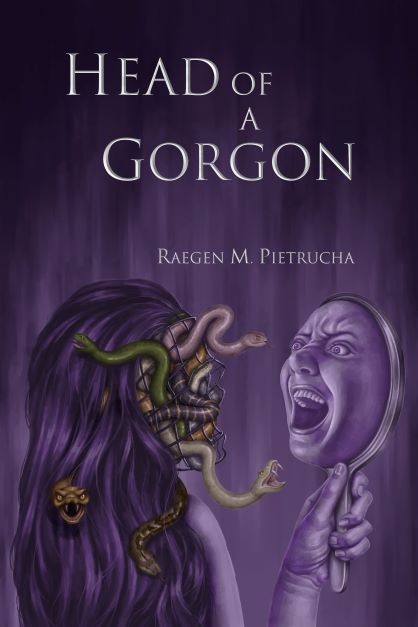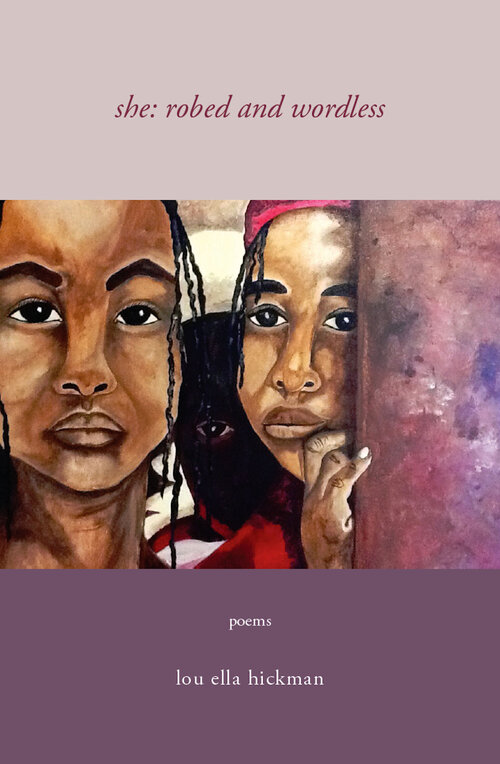Editor’s Note: This exchange is part of a series of brief interviews with emerging writers of recent or forthcoming books. If you enjoyed it, please visit other interviews in the I’ve Got Questions feature.
- What’s the title of your book? Fiction? Nonfiction? Poetry? Who is the publisher and what’s the publication date?
My debut full-length poetry collection, Head of a Gorgon, is coming out May 17 through Vegetarian Alcoholic Press.
- In a couple of sentences, what’s the book about?
Head of a Gorgon is a narrative in poems that reimagines the myth of Medusa, transporting this ancient tale of sexual violence into contemporary times and examining it through a survivor-centric, feminist lens. Via persona poems that enable readers to hear this story of trauma primarily and directly from a protagonist often sidelined or silenced in other tellings, this devastating collection brings the visceral physical and psychological experiences and effects of sexual violence out of the shadows and into the spotlight, revealing a path along which survivors might reimagine themselves within the societal structures that work against them.
- What’s the book’s genre (for fiction and nonfiction) or primary style (for poetry)?
Head of a Gorgon is a collection of poems, shorter than a novel in verse but along the lines of that sort of hybrid, that follows a narrative arc and incorporates a mix of free verse and modified, modernized formal verse.
- What’s the nicest thing anyone has said about the book so far?
I’m grateful for all the kind words folks have shared about my book thus far, including the generous blurbs that appear on the book’s back cover. But the comment that’s stood out the most thus far was actually about some poems from the book that I shared a while back when they first appeared in a literary journal. A former coworker of mine wrote to say, “I’ve never recognized something so deeply at my own center in someone else’s art than I just did in your poems. I’m breathless, and deeply grateful.” To have been able to form that kind of connection with another person through my work, to have been that mirror to their experience — that’s incredibly meaningful to me as an artist.
- What book or books is yours comparable to or a cross between? [Is your book like Moby Dick or maybe it’s more like Frankenstein meets Peter Pan?]
This book was influenced by a number of poets who are far more talented and accomplished than me, so while I wouldn’t say it’s comparable, I would just say I tried to distill some of my favorite elements from the following poets: Louise Gluck, Anne Carson, Jason Shinder, Larissa Szporluk, Marie Howe, Sharon Olds, Adrienne Rich, Sylvia Plath, Anne Sexton, and William Shakespeare. More specifically, if it were a recipe, it might be considered a mix of the authority of voice from Gluck’s Averno with the myth and form play of Carson’s Autobiography of Red as well as the insular feel of Shinder’s Stupid Hope, along with a few dashes of the other poets’ vibes I mentioned sprinkled throughout.
- Why this book? Why now?
In the wake of the #MeToo movement, I believe this specific work has never been more timely or critical — not only to those who have survived sexual violence but also to those who may be in a position to change the systems that perpetuate it.
- Other than writing this book, what’s the best job you’ve ever had?
I’ve had two jobs in my life, including my current job, where I basically got paid to read, and it is every bit as great as it sounds. I can leave this type of work at work, I’m not drained by it, and it affords me plenty of time and energy for my creative endeavors.
- What do you want readers to take away from the book?
My deepest hope is that this work reaches survivors of all genders and that they may be able to transform the tragic into some form of healing, activism, or both, should they so desire. The reason I create and share anything at all is because, after several years of struggle, I became able to live my life in a way that empowered me. I hope in reading my work, others realize they are not alone and never were — and that they can also overcome much adversity.
- What food and/or music do you associate with the book?
I created a whole playlist — not yet fully published — that can be followed on this dedicated Twitter thread, where the full compilation will eventually appear. Generally speaking, though, because the book covers a serious, dark subject, the music I associate with it is also dark and serious.
- What book(s) are you reading currently?
To be honest, I haven’t had all that much time to read since around November, when I started dedicating nearly all my free time outside work to promoting Head of a Gorgon. But the most recent books I’ve read include Give the Bard a Tetanus Shot by V.C. McCabe; History of Present Complaint by HLR; Flame to the Watering Hole by Jaime Alejandro Cruz; Employment by Gina Tron; Myth America: Poems in Collaboration by Carolina Hospital, Nicole Hospital-Median, Holly Inglesias, and Maureen Seaton; and Coughing Up Planets by Samantha Fain. And the very next book I’m planning to read, once I have time to come up for air, and one I am very much looking forward to is Good Morning to Everyone Except Men Who Name Their Dogs Zeus by Lannie Stabile.
Learn more about Raegen on her website.
Follow her on Twitter and Instagram.
Buy the book from the publisher (Vegetarian Alcoholic Press).



